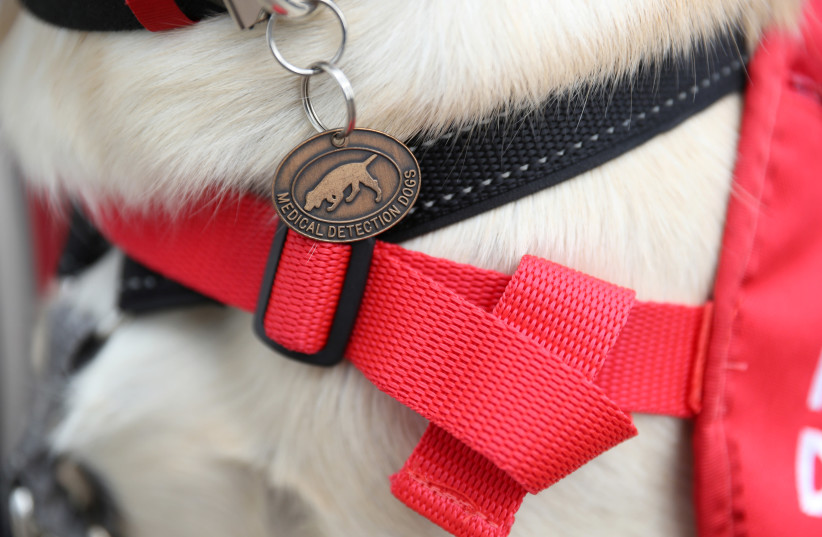The use of sniffer dogs to detect COVID is not new, but this method is particularly unique. Soon enough, we may be seeing sniffer dogs at every airport to allow for travel amid the pandemic.

Specially trained medical detection dogs may be able to recognize positive coronavirus samples with up to 96% accuracy, a new proof-of-concept study claims.
The research, carried out by professionals from the University of Pennsylvania School of Veterinary Medicine’s Working Dog Center, found that dogs can be trained to identify saliva and urine samples of patients who tested positive for COVID-19.
The study was published on the Public Library of Science’s website after having been peer-reviewed.
“A unique odor associated with SARS-CoV-2 infection present in human urine as well as saliva, provides impetus for the development of odor-based screening – either by electronic, chemical, or biological sensing methods,” researchers stated in the study.
However, there is a certain concern for training such dogs, because since the ultimate goal would be for them to detect COVID-positive patients in a public setting and not from such samples, such training would be dangerous, as they would need to be trained around people who have tested positive for coronavirus.
However, researchers expressed concern over the method of providing samples used in training the dogs, as they could possibly get accustomed to specific samples rather than some sort of trademark scent of a COVID-positive sample.
“Future training of dogs and investigation into biological, chemical and electronic detectors should focus on increasing the number of relevant and novel samples,” the study states.
Ideally, researchers note, many samples must be used in the training process.
This is not the first study to promote the notion that coronavirus could be detected using medical detection dogs. In fact, the use of sniffer dogs to detect coronavirus in public spaces is considered a potential method for reopening international travel safely.
In February, a German veterinary clinic managed to train sniffer dogs to detect the novel coronavirus in human saliva samples with 94% accuracy.
“We did a study where we had dogs sniffing samples from COVID-positive patients and we can say they have a 94% probability in our study… that they can sniff them out,” said Holger Volk, head of the veterinary clinic.
“So dogs can really sniff out people with infections and without infections, as well as asymptomatic and symptomatic COVID patients,” he added.
In Finland, dogs trained to detect the novel coronavirus began sniffing passenger samples at Finland’s Helsinki-Vantaa Airport last September, in a pilot project alongside more usual testing there.
Chile’s international airport in Santiago is also using canine detectors.
A study published in March found that Thai sniffer dogs trained to detect COVID-19 in human sweat proved nearly 95% accurate during training and could be used to identify coronavirus infections at busy transport hubs within seconds.
“The dogs take only one to two seconds to detect the virus,” Professor Kaywalee Chatdarong, leader of the project at the veterinary faculty of Thailand’s Chulalongkorn University, told Reuters.
“Within a minute, they will manage to go through 60 samples.”
The dogs can detect a volatile organic compound secreted in the sweat of COVID-19 sufferers, even in the absence of disease symptoms, the Thai researcher said.
They would not need to sniff people directly, but could screen samples of sweat, she added, a task that should not be difficult in a tropical country such as Thailand.
That these furry fellows may be able to protect people throughout the world from further infection, is another reason that they are man’s best friend.
As reported by The Jerusalem Post
